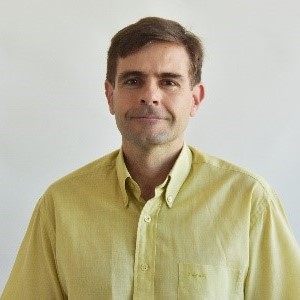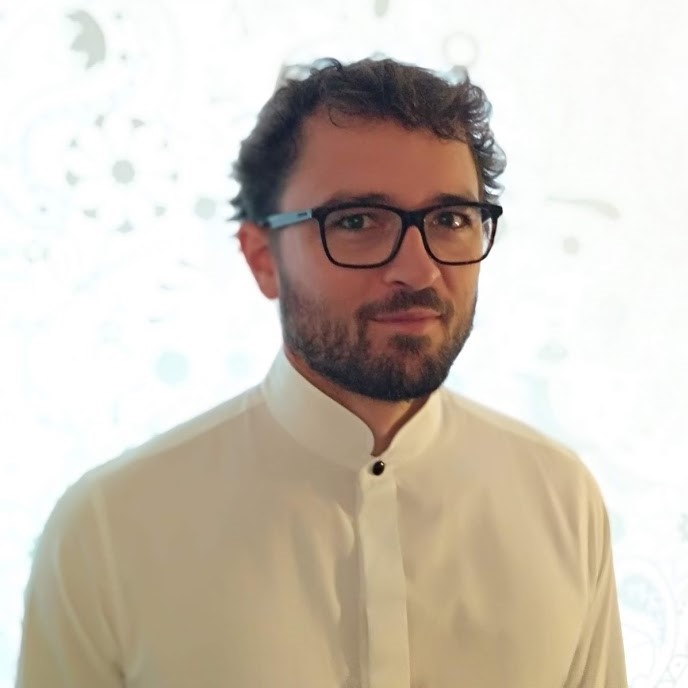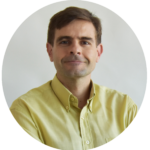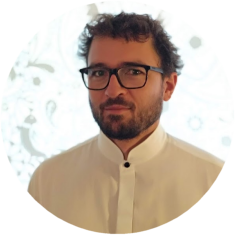Fundacion CIRCE – the Coordinators Interview
Behind every project there is a team of people who work together for a common purpose. Knowing a project does not only mean understanding the results achieved or the activities carried out, but also knowing who is behind these activities, what motivates them and what were the life paths, choices and personal goals that led them to be part of a research team today. For this reason we want to introduce you today the coordinators of the frESCO project, Juan Aranda and Leon Nielsen, through an interview dedicated to them.

Juan Antonio Aranda Uson
frESCO Project Coordinator
Leon Nielsen
frESCO Project Manager
Would you briefly describe yourself and your career?

My name is Juan Aranda and I am the proud technical coordinator of the frESCO project. I am and Industrial Engineer and PhD in Renewable Energies and Efficiency by the University of Zaragoza, and MBA by ESADE. I have been working as manufacturing engineer, product design manager, technical service manager and business unit manager in several large and small companies like HP, Ricoh Group and Venture Electronics in the last 20 years. I have also worked as an associate professor in the University of Zaragoza for 5 years. Since 2010 I work for the CIRCE Foundation, managing public funded projects (FP7, H2020, national calls) and private projects for a variety of customers and domains. My areas of expertise range from energy efficiency in industry and buildings, energy poverty, renewable energy sources and socio-economic and environmental assessments through the Life-Cycle methodology.

Hello, I am Leon Nielsen, Project Manager at Fundacion CIRCE. Originally from Australia, I studied Civil Engineering and Mathematics going on to practice as a Façade and Structural Engineer. My background in multidisciplinary teams comes from the construction industry, where I spent 10 years on both the design and construction side of building projects, a very technical but time and cost sensitive industry. This gives you a very pragmatic view of problems that arise and how to move past them to a common goal using both technical and management solutions.
In Spain I found myself involved in the preparation of H2020 projects as my technical and project background as well as native English abilities ticked all the right boxes.
As a project manager at Fundación CIRCE I am exposed to a wide range of different technical and business/organisational innovations that all align with the underlying objectives of sustainability. This broad innovation landscape is very interesting to me and has as at its foundation the very future of the earth and human systems that sustain us.
Which is your role in frESCO project as coordinator?

As technical coordinator I am responsible for the timely and correct execution of the work plan. This is not just managing a set of tasks that take place correlatively since the results of some tasks condition the approach to take in the subsequent work. To ensure the success of the project all participating partners need to share a common view of the project methodology and the objectives. Progress is made by a collaborative approach where new findings are discussed to agree on the best strategy to follow and where all partners contribute with their knowledge and experience. Although I am also executing tasks, my role is more like a coach that ensures that the vast knowledge capital in the team works as one and focus and resources are applied whenever a problem arises.

As the project manager my responsibilities are those that do not require a detailed technical knowledge of the specific features of frESCO. They do however require knowledge of publicly funded innovation projects and the overall innovation space, and how to maximise the benefits for the partners and society as a whole within the framework provided by the EC. My role especially focuses on the administrative tasks and communications both informal and formal towards the EC, ensuring that the project execution meets overall objectives, but is also carried out on time and within budget. With this aim I am here to help all partners meet their administrative obligations and troubleshoot difficulties to achieve the project objectives. Perhaps most importantly, Juan and myself aim to facilitate cooperation and build a sense of togetherness within the frESCO consortium.
What are the main challenges you face in this project and how do you overcome these challenges?

Challenges are what makes work and life interesting. We need to make sure we have the resources, time and commitment to overcome them. frESCO is a full new paradigm of energy services and creating something innovative in a not fully friendly regulatory environment that involves the participation of many domestic prosumers into an opportunity for them to manage their own energy through ESCOs and aggregators. This new generation of energy services have to add value for the prosumers, be technically and economically feasible by the ESCO and comply with today’s and future’s regulations in the energy and data handling domain.
The best way to give room to the new concept of P4P energy services is by testing them at low scale in a controlled environment to prove, not only that they are technically feasible but also they contribute to the wellbeing of residents, the grid management and the adoption of increasing volumes of renewable energy into the electric system of the future. This is what frESCO intends to do in the four living labs along the duration of the project.

In general I find our partners very cooperative and hard working. That makes a project managers job much easier. So from a project management point of view the challenges are relatively few and easily overcome.
However thinking of the specifics of frESCO project, and the overall objectives of frESCO project, namely new efficiency and flexibility opportunities in the residential sector and the technical and market development required for their uptake then we certainly have challenges.
Creating fair baselines, what is normal for the profile of the household, and then a digital ledger that all parties involved in the transaction can have confidence in are obvious technical challenges, but with the combined expertise of the partners and complimentary nature of abilities we should make good progress.
On the other side is ensuring that the market opportunities are evenly balanced for all parties involved in the transaction, that value, either monetary or in improved services or wherever possible both, can be provided to all parties. In this the large effort devoted to stakeholder engagement and the demonstrator data should be helpful.
Is the current COVID-19 emergency affecting your daily job? How?

Yes, Indeed COVID-19 is affecting the whole society and ourselves but I can consider myself fortunate as I have been able to work at home remotely since March 2020. The project Kick-off meeting in June was held remotely, and the partners, we have not had the chance to meet personally and get to know each other better. COVID-19 is also affecting the engagement of the demo users at some living labs.
Working remotely is always more impersonal and I miss the social contact with my colleagues every day in the office, but we are doing our best to minimize the impact of this pandemic in our commitments and deliverables.

I would not say it affects my work very much. We often use online spaces, meetings, document sharing etc to carry out Europe wide projects with partners that anyway find it difficult to meet more frequently than every 6 months. So, this mode of working is quite usual for us, though has increased in importance.
However, at Fundación CIRCE there is a strong sense of personal and organizational responsibility in the current crisis. So, wherever we can we continue to work from home, I and most of my colleagues have been at home since March 2020.
You do miss those real in person interactions that can help build trust and understanding; this is true amongst colleagues and within the consortium just as it is true of dissemination and communication activities to the wider public and stakeholders.
I look forward to the day where we can hold in person meetings and I can be together with my colleagues in the office as well as with our partners in frESCO. That will be a good day, though I expect it will be a gradual transition back to normality.
Do you think that your activities will be different after the end of the emergency? How?

Yes, most likely. Everything will be different since, in my opinion, there will never be a sharp end of the pandemic to allow us to return to our lives as we knew them. Hopefully vaccines and collective immunity will progress until a point at which the virus and the human beings will coexist. Virus mutations will likely diminish the mortality rate one day and maybe, the COVID-19 would end up as a regular cold. However, there will be a lot of work on the social aspect to catch up, especially for children that are missing part of the learnings coming from social interactions with other children and people. Adults will probably be less keen to social contact and the use of remote communication tools will increase even further.

I think this has been a learning experience in how effective digital working can be. That ability and knowledge of how to work in digital spaces has increased dramatically and digital collaboration despite its challenges will likely continue to grow.
We are making very good progress in all our projects because of the fast adoption of these digital methods. When we are able to meet again this might mean thinking twice before holding in person meetings to ensure it is the best mode. There is something slightly inconsistent in working to reduce carbon emissions and then getting 20 plus project partners to take jet planes to meet together. Though the human aspect and the obvious communication benefits of in person meetings will continue to be important and will bring us together. I think we will value these in person meetings more, and use them to focus on the important aspects that cannot be achieved remotely.
In your opinion, what impact will frESCO have on the future?

frESCO is an ambitious project that responds to several present requirements: higher citizenship participation in energy markets by means of energy self-generation assets and flexibility trading, the decarbonization of the domestic sector and the full use of the huge potential of Artificial Intelligence by the wide use of real time data. The ESCO market is stuck as far as the domestic sector concerns and increasing revenues from hybrid ESCO services based on big data platforms is the best way to get this large sector into the medium term decarbonization strategies.
Today it is an option to leave the large residential sector out of the mainstream of efficiency trends and uptake of renewables but in the long run it is unavoidable to involve all citizens and domestic prosumers to the common effort of emission abatement and grid stability. Including so many actors is only possible by means of IT solutions that provide real-time forecasts and analytics for every individual consumer at any time and makes the wisest decisions of energy usage by means of smart contracts with the users.
frESCO will show that small contributions from many domestic users can make relevant impacts in the energy system and technology can make this happen now.

frESCO is one of those projects which seeks to develop and test the required technology and market mechanisms for market facilitated behavioral change in households. It will help put in place the systems that can facilitate and remunerate customer (or prosumer) actions which can reduce total energy use and especially help with network security and stability in a world with more renewable and distributed generation.
It´s one of the many small parts of the bigger picture, but the technology is now available to do it, and every little bit counts.
What do you enjoy the most about working in an international Project Consortium such as frESCO?

The frESCO consortium is well balanced and diverse. It groups people from 6 different countries and features demo sites in 4 EU countries. Experiences from every country about their current energy problems, domestic sector consumption and energy markets are common in many aspects, but they are also particular in others. Solutions given to common problems are also different sometimes. Sharing those experiences enriches the cultural and technical baggage of the team members where everyone has something to learn from the next-door partner.

The accents! In all seriousness it´s wonderful to have so many people from different countries speaking my native language to me, although I see it as just a lucky coincidence.
But in all seriousness as a bit of an outsider to the “European project” I think it also underlines what being European means to many Europeans. Such a variety of languages and cultures working together to face truly global challenges in their field of influence in a cooperative manner. It represents the type of cross border thinking that is absolutely necessary to face the problems of the future.
This requires the thinking to be generalized, in terms of common goals and common solutions but then specific, as we seek to find the commonalities and through that process discover the unique challenges each country or indeed region or community or household faces. These insights are important and more easily gained with a variety of viewpoints.
Who do you think frESCO can help the most? Which are the final targets?

The solutions developed in frESCO benefit those companies that wish to offer innovative energy services to the domestic sector. These companies will be in charge of using and spreading the fresco energy service concept throughout their clients and stakeholders. Nevertheless, the frESCO solutions are developed to provide services to the building users, either for efficiency, for flexibility remuneration or for other purposes like building automation, comfort preservation, etc. Finally, these end users, whether consumers or prosumers, will be able to become active players in the energy system and become the final beneficiaries of the frESCO solutions.

frESCO is a small part of the overall drive to zero carbon emissions. In that regard everyone is a beneficiary, it´s important not to lose sight of that.
frESCO is focused on households, that is domestic energy users. These are the key targets in terms of increasing their knowledge and participation. But of course the final targets are both the potential providers of the new services and the customers and end users of the new services. In new markets these lines become necessarily blurred.
The household can become a provider of a flexibility service, with the end user being the network operator. As part of that deal however the traditional customer could also receive some digital energy services or building refurbishment that improve their comfort and/or reduce their energy consumption or energy expenditure.
The key is providing value to everyone involved, and frESCO is designed to demonstrate some of the required infrastructure both digital and physical, and collect data on the value available to all sides.
For market uptake however, companies willing to market and sell the new opportunities are vital, so we are clearly focused on these also.





